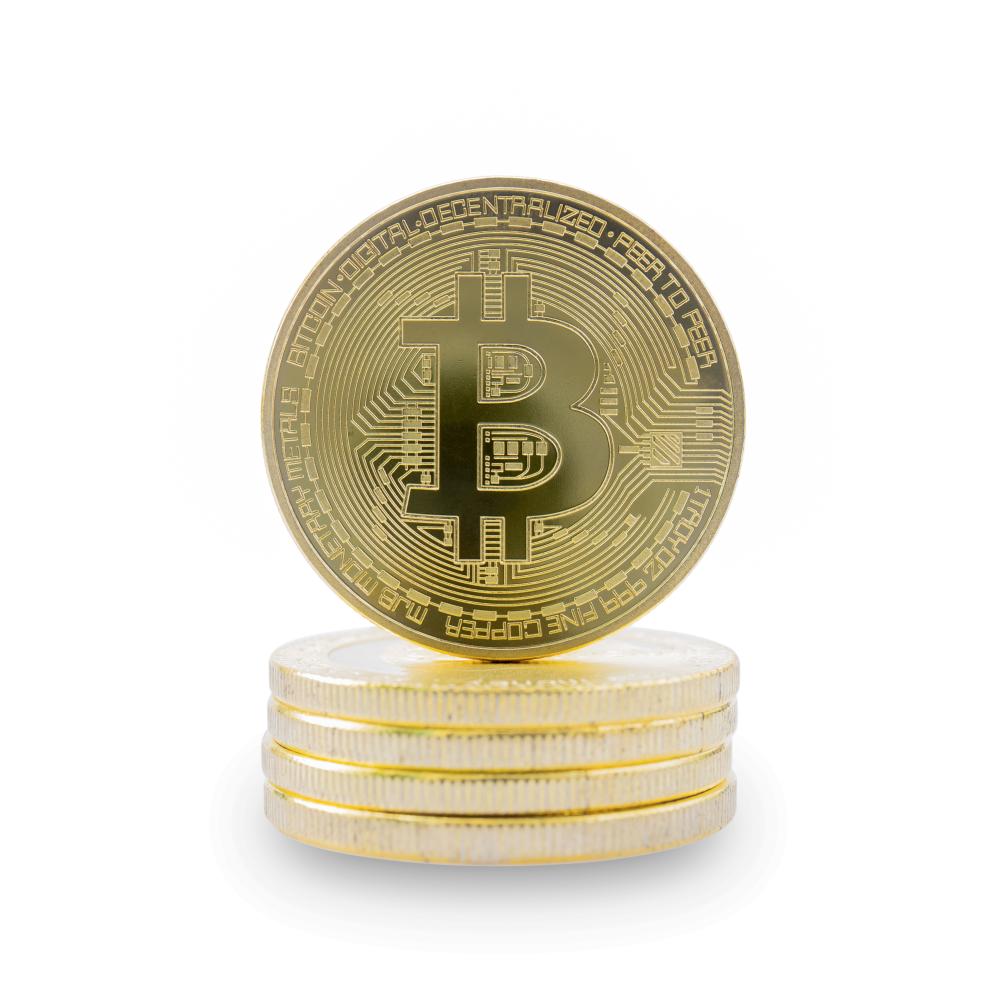
The Future of Email Innovation
In the digital landscape, traditional email systems have long been the standard for communication. However, with mounting concerns over privacy, security, and control, many users are turning their attention toward a revolutionary alternative: Decentralized Email. This cutting-edge approach seeks to address the shortcomings of conventional email systems by leveraging blockchain technology and decentralized networks to enhance privacy and data ownership.
Decentralized Email embodies the principles of Web3, offering a peer-to-peer network where messages are not stored on a central server, reducing the risk of data breaches and unauthorized access. Users can enjoy greater autonomy over their communications, making this system an attractive choice in an era where data privacy is paramount. The idea is not just to protect information but to empower users with the ability to control their own digital footprint.
Empowering Individuals Through Decentralization
What truly sets Decentralized Email apart is its commitment to user empowerment. By eliminating reliance on a single point of failure, users gain unprecedented control over their emails and the assurance that their data remains beyond the reach of prying eyes. This is particularly vital for those in professions where confidentiality is crucial, such as legal, medical, or financial services.
From a personal experience perspective, imagine a world where your email is not only secure but also free from unsolicited advertisements and data mining. This is the promise of Decentralized Email–communications that prioritize your privacy and autonomy, allowing you to engage in conversations knowing your data is yours alone. The potential for customization is vast, with users able to tailor their email experience to suit their unique needs without the limitations imposed by traditional providers.
Embracing decentralization also opens new avenues for collaboration and information sharing. By reducing the barriers to secure communication, individuals and organizations can forge stronger connections and collaborate with confidence, knowing their discussions remain private and secure.
Decentralized Email in the Web3 Era
As we venture further into the Web3 era, Decentralized Email is poised to become a cornerstone of digital communication. This evolution is not merely about improving existing technology but redefining how we interact online. It’s about bringing power back to the people, ensuring that communication can be both secure and accessible without sacrificing user experience.
Organizations like #HashtagSpace are leading this charge, providing innovative solutions that integrate seamlessly with decentralized technologies. By reserving a #hashtag, individuals can unlock the myriad advantages of Decentralized Email, transforming their approach to digital communication and positioning themselves at the forefront of this technological shift.
In a world where data is rapidly becoming one of the most valuable commodities, Decentralized Email offers a glimpse of a more equitable landscape–one where privacy, security, and autonomy are not just aspirations but standard features. For those ready to embrace this future, the possibilities are as exciting as they are empowering.
Redefining Security with Decentralized Email
One of the most appealing aspects of Decentralized Email is the enhanced level of security it provides. Unlike traditional email systems that store your messages on centralized servers susceptible to hacking and data leaks, decentralized systems distribute data across multiple nodes. This not only minimizes the risk but also hinders data tracking by third parties, a crucial feature in the digital age.
For businesses handling sensitive information, Decentralized Email acts as an impenetrable fortress, protecting client data with advanced cryptographic techniques. From a security professional’s standpoint, decentralization is a game-changer, making it significantly harder for malicious actors to exploit vulnerabilities that are more prevalent in centralized systems.
Anecdotal evidence abounds from early adopters who have found peace of mind in knowing their communications are encrypted end-to-end, with no central authority able to access their data. It’s a paradigm shift that prioritizes user empowerment and security in equal measure, challenging the status quo of digital communication.
As the world continues to digitize, the demand for secure, private communication will only grow. Decentralized Email stands ready to meet this challenge, offering a robust alternative to outdated systems and heralding a new era of digital correspondence where privacy is not a luxury, but a given.

Exploring the Decentralized Internet
The concept of the Decentralized Internet ignites possibilities beyond traditional web usage, presenting a world where users reclaim control over their data and interactions. Traditional internet infrastructures, typically dominated by large corporations, can place power in the hands of a select few, creating centralized points of control and potential censorship. In contrast, the Decentralized Internet offers a more democratic platform, allowing peer-to-peer connectivity and the sharing of data without the need for an intermediary.
In my experience, engaging with decentralized networks has transformed how we approach online privacy and freedom. By distributing data across multiple nodes, users can experience enhanced security and reduced downtime. This innovative structure not only champions individual empowerment but also brings ethical considerations to the forefront, challenging the norms of data ownership and surveillance.
The Role of Blockchain in Decentralization
Blockchain technology is the backbone of the Decentralized Internet, providing a transparent and tamper-proof record of transactions. This digital ledger allows for accountability without the need for a central authority, reshaping trust dynamics within digital communities. From cryptocurrencies to smart contracts, blockchain’s immutable nature offers a fertile ground for building decentralized applications (dApps) that could potentially disrupt various industries.
One might question how blockchain integrates with the Decentralized Internet. At its core, blockchain supports decentralized networks by ensuring that no single entity can alter the foundational frameworks. This is vital for maintaining the integrity and trustworthiness of peer networks.
By witnessing firsthand the entry of blockchain into mainstream use, it is evident that the synergy between blockchain and the Decentralized Internet can empower users in unprecedented ways. The ability to leverage decentralized finance (DeFi) and non-fungible tokens (NFTs) also adds layers of investment opportunities and creative license that were previously unattainable.
Personalizing the Web Experience
The Decentralized Internet holds the promise to redefine our personal interactions online, offering a bespoke browsing experience that’s adaptable and focused on individual needs. Rather than being at the mercy of algorithmic predictions, users can take control of their online activities. This participatory nature enables a tailored web journey that resonates with personal preferences and requires a paradigm shift in how we perceive digital autonomy.
Having observed the convergence of blockchain technology with web personalization, I find that users now have the option to customize their interaction depth and channel choices. This approach empowers individuals to engage with content on their own terms, fostering an inclusive digital sphere no longer dictated by corporate interests.
Finally, the Decentralized Internet not only revolutionizes connectivity but also imbues each user with an identity that transcends traditional Internet limitations. Seamless interaction and deeper engagement with web3 technologies allow individuals and businesses alike to explore new frontiers, challenging the status quo and paving the way for a future where the Internet truly belongs to its users.
These perspectives highlight the transformative potential of the Decentralized Internet, where the promise of democratization aligns with the aspirations of forward-thinking individuals and entities eager to redefine the internet landscape.

What is a decentralized email?
Decentralized email is a revolutionary approach to digital communication that diverges from the traditional email systems we’re accustomed to. Instead of relying on centralized servers where data is stored and potentially vulnerable to breaches, decentralized email utilizes blockchain technology to distribute data across a network. This means your communications are inherently more secure, private, and free from the prying eyes of unauthorized third parties. For instance, imagine a world where you don’t have to worry about a single server going down or being hacked. With decentralized email, the risk of such vulnerabilities is minimized, granting you peace of mind and greater control over your digital interactions. As part of the #HashtagSpace community, we are actively exploring this frontier, making decentralized communication more accessible to everyone.
Is there a blockchain email?
Yes, blockchain email is increasingly becoming a part of the digital communication landscape. By leveraging blockchain–a transparent, tamper-proof system–blockchain email services ensure that your messages remain secure and unaltered. This technology fosters trust by maintaining a permanent, immutable record of transactions and interactions. Picture using email without the fear that sensitive information could be easily intercepted or altered. It’s a shift from a single point of failure to a robust, distributed network. At #HashtagSpace, we believe in empowering our users with cutting-edge solutions like blockchain email to enhance privacy and security across their digital communications.
Is there a Web3 email?
Indeed, Web3 email is a concept that’s gaining traction as we move towards a more decentralized internet. Web3 fundamentally means a shift from platform-centric operations to user-centric ecosystems, and Web3 email operates on similar principles. It offers a peer-to-peer network for communication, ensuring that emails are not stored on centralized servers, thus enhancing user privacy and control over their data. Imagine having an email service that truly respects your privacy by design, not just by policy. This is what Web3 email seeks to achieve. At #HashtagSpace, we’re at the forefront of this evolution, providing decentralized email solutions as part of our wider suite of Web3 services, allowing users to experience the internet in a more personal and secure way.
What does it mean if an email is encrypted?
When an email is encrypted, it means that the content of the message is transformed into a code to prevent unauthorized access. Only the intended recipient, who has the correct decryption key, can read the message. Encryption adds a layer of security to your communications, ensuring confidentiality and integrity. Picture sending a letter in a locked box that only the recipient has the key to open. This is akin to what encryption does for your emails. In today’s digital age, securing communication is more important than ever, and at #HashtagSpace, we advocate for solutions that prioritize user security and privacy through advanced encryption methods. Have you ever considered the security of your emails, and how encryption might give you peace of mind?
What are the benefits of a decentralized internet?
A decentralized internet challenges the conventional centralized architecture dominated by big corporations, offering a more democratic and user-controlled environment. Benefits include enhanced security, as data is distributed across a network of nodes, reducing vulnerability to attacks. Furthermore, it empowers users by giving them control over their data and reducing censorship and surveillance risks. Imagine browsing without your activity being tracked or manipulated by algorithms. At #HashtagSpace, we’re pioneering ways to make the decentralized internet accessible, offering services that protect your autonomy and privacy online. How might a decentralized internet change your experience as a digital citizen?
How does a decentralized stablecoin differ from traditional stablecoins?
Decentralized stablecoins are a fascinating aspect of the crypto world, designed to maintain value stability while operating without a central authority’s control. Unlike traditional stablecoins, which may rely on reserves in banks or fiat currencies, decentralized stablecoins use blockchain technology and smart contracts to manage their price stability independently. This ensures transparency and reduces reliance on trusts in central entities. Imagine having a digital currency that aligns with the decentralized ethos, offering reliability without compromising principles. At #HashtagSpace, we’re enthusiastic about the potential of decentralized finance (DeFi) tools like these to transform the financial landscape. Have you explored how decentralized finance can impact your financial strategies?
Resources
- Electronic Frontier Foundation – The Electronic Frontier Foundation is a nonprofit organization dedicated to defending civil liberties in the digital world.
- Center for Democracy & Technology – The Center for Democracy & Technology promotes democratic values and constitutional civil liberties in the digital age.
- Internet Society – The Internet Society is a global nonprofit organization dedicated to ensuring the open development, evolution, and use of the Internet for the benefit of all people throughout the world.
- Privacy International – Privacy International is a charity that defends and promotes the right to privacy across the world.


